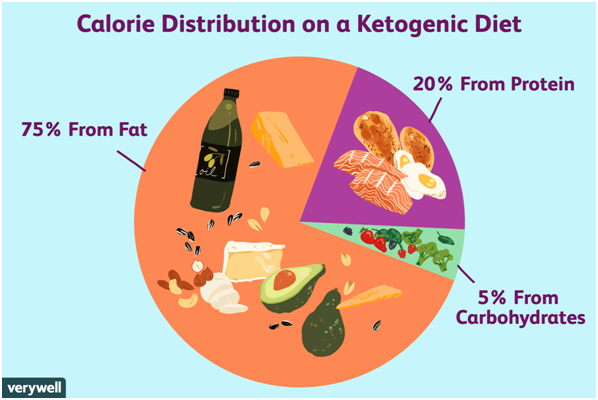
Contrary to popular belief, not all fats are created equal on the Keto Diet; it emphasizes healthy fats.
The high-fat nature of the Keto Diet will lead to elevated cholesterol levels, potentially increasing the risk of heart problems.
Keto Diet allows you to consume an unlimited number of calories, as long as you adhere to the low-carb, high-fat principles
Did you guess which of these affirmations are right and which are wrong? If not, let’s dive a bit into the world of the KETOGENIC DIET, exploring what it is, how it works, its potential benefits, and the common mistakes to avoid.
Introduction:
The Keto Diet – a term that has sparked both intrigue and skepticism in the world of nutrition. Is it the ultimate solution to weight loss and improved health, or is it a risky and unsustainable trend?

Understanding the Keto Diet:
The Keto Diet, short for the ketogenic diet, is a low-carbohydrate, high-fat diet that has gained attention for its potential to induce a metabolic state known as “ketosis.” Ketosis is a natural process that occurs when the body switches from using carbohydrates as its primary energy source to burning fat. During this transition, the liver produces ketones, which are used for energy instead of glucose.

How Ketosis Works:
In a typical diet, our bodies rely on carbohydrates for energy. However, when carbohydrate intake is drastically reduced (usually to about 5-10% of daily calories), the body begins to break down stored fat for energy, leading to the production of ketones. This state is called ketosis.

The Keto Dieting Experience:
During the initial stages of the Keto Diet, many people report experiencing the “keto flu.” This includes symptoms like fatigue, headache, and irritability, as the body adapts to using ketones. After this adjustment phase, individuals often experience increased energy, reduced appetite, and potential weight loss.

Common Mistakes:
- Not Eating Enough Fiber: Neglecting fiber-rich foods can lead to digestive issues.
- Ignoring Hydration: Staying hydrated is crucial as ketosis can lead to water loss.
- Neglecting Nutrient Variety: Focusing solely on fats can lead to nutrient deficiencies.
- Overeating Protein: Excessive protein intake can disrupt ketosis.
- Not Monitoring Ketone Levels: Regularly checking ketone levels can help ensure you’re in ketosis.
Best Practices:
- Balanced Diet: Include a variety of low-carb vegetables and high-quality fats.
- Stay Hydrated: Drink plenty of water and consider electrolyte supplements.
- Monitor Ketone Levels: Use ketone strips or a blood ketone monitor.
- Listen to Your Body: Adjust your diet based on how you feel.
The Journey:
- After 1 week: Many experience increased energy levels and reduced cravings.
- After 1 month: Some report weight loss and improved mental clarity.
- After 3-6 months: Long-term benefits may include stable blood sugar levels, improved cholesterol, and potential weight loss.
Duration and Consultation:
The duration of the Keto Diet can vary from person to person. Some use it for short-term weight loss, while others adopt it as a lifestyle. Consulting a healthcare professional or a registered dietitian before starting the Keto Diet is recommended, especially for those with underlying health conditions.
Not a One-Size-Fits-All Approach:
While the Keto Diet may benefit some, it may not be suitable for everyone. Individuals with certain medical conditions or those who are pregnant or breastfeeding should approach it with caution.
Moreover, individuals with diabetes should be cautious of the risk of ketoacidosis, a potentially dangerous condition characterized by high ketone levels in the blood. While ketosis, the desired metabolic state of the Keto Diet, is generally safe, ketoacidosis can occur in individuals with diabetes due to factors like insulin deficiency and dehydration. Monitoring blood sugar and ketone levels is crucial for those with diabetes, ensuring their safety while following a ketogenic diet.

CONCLUSION!
The Keto Diet, like any other dietary approach, has its pros and cons. It can be a valuable tool for some in achieving weight loss and managing specific health conditions. However, it’s crucial to approach it with knowledge, caution, and individualization. Always consult with a healthcare professional to determine if the Keto Diet is the right choice for you. Remember, balance and moderation are key to a sustainable and healthy diet.
